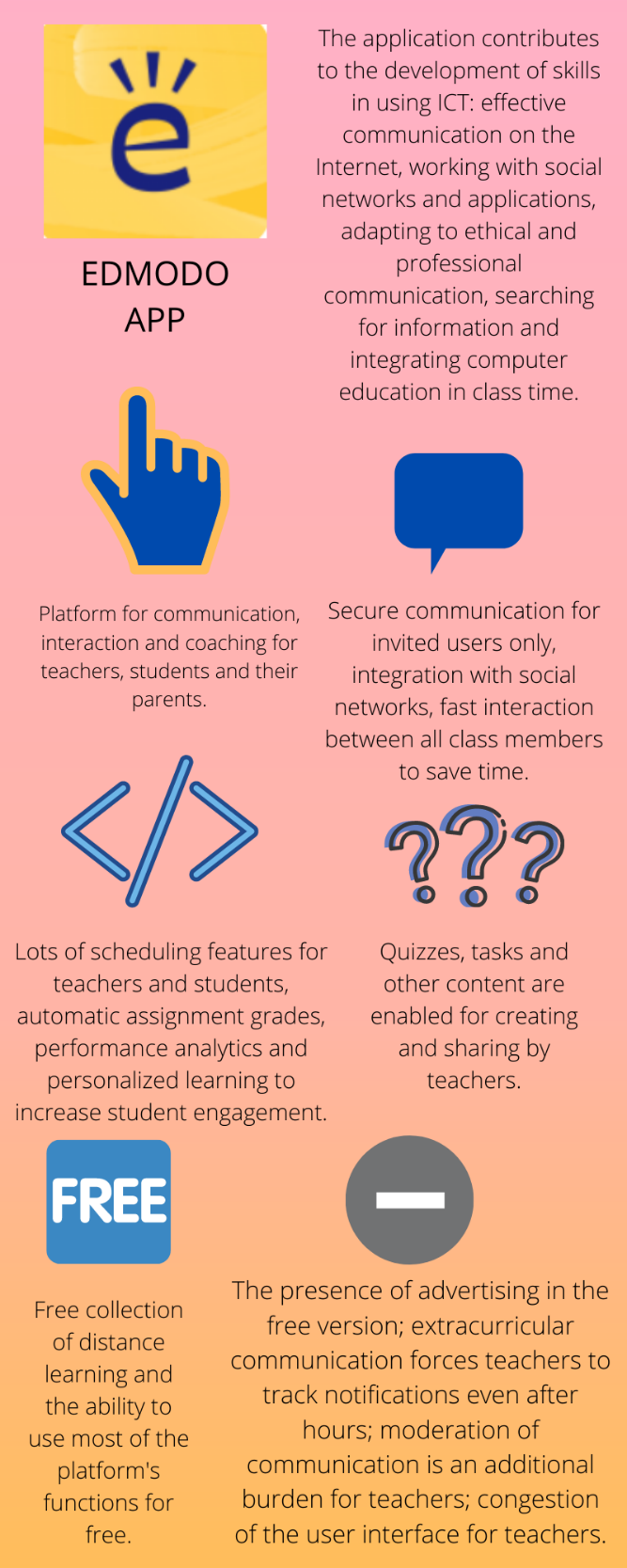
I learned that there are a lot of applications for the education of very different directions and functionality. Applications that cover most educational and control processes have a social network structure, which is extremely important for both parents and students, most of whom have experience of using. In this regard, I chose the tool most similar to the functionality of the social network Facebook, as the most popular in Australia (Huang et al., 2019). Ergonomics in using such social networks must be adapted for educational purposes. This process automates many of the bureaucratic processes that burden the teaching profession. Knowledge and ability to apply technology in school can positively affect my future career, allowing me to save time on related responsibilities and entirely focus on the educational process.
As a teacher, I will set an example of this ethical use by fostering students’ practical and professional Internet communication skills. The need for manual moderation of communication by a teacher, on the one hand, creates an additional burden. Still, on the other hand, it allows you to practice better in the AITSL 4.5 standard, which is responsible for the safety, responsibility, and ethics of the use of ICTs (Skehan, 2018). The ability to create my content and materials on subjects will allow me to constantly train my professionalism in the knowledge of the issue and provide this knowledge from new points of view in a format that is more accessible to students.
Information technologies are becoming an integral part of the daily life of every person, including children. It is simply impossible to ignore such approaches to make life easier for parents, teachers, and students. Like those of everyday use, educational apps have a positive effect on the acquisition of academic habits (Tangirov, 2020). Given the many advantages of these applications, in the long term, all organizational processes will move to a more accessible and understandable online format.
References
Edmodo. (n.d.) About us. Web.
Huang, X., Western, M., Bian, Y., Li, Y., Côté, R., & Huang, Y. (2019). Social networks and subjective wellbeing in Australia: New evidence from a national survey. Sociology, 53(2), 401-421.
Skehan, L. (2018). Growing High Standards: Using the AITSL standards to develop your teaching. Agora, 53(3), 26-33.
Tangirov, K. (2020). Didactical possibilities of mobile applications in individualization and informatization of education. Mental Enlightenment Scientific-Methodological Journal, 2020(1), 76-84.